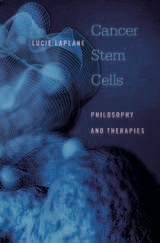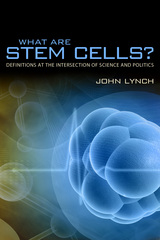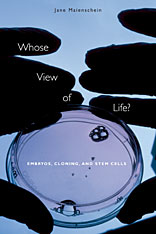
An innovative theory proposes a new therapeutic strategy to break the stalemate in the war on cancer. It is called cancer stem cell (CSC) theory, and Lucie Laplane offers a comprehensive analysis, based on an original interdisciplinary approach that combines biology, biomedical history, and philosophy.
Rather than treat cancer by aggressively trying to eliminate all cancerous cells—with harmful side effects for patients—CSC theory suggests the possibility of targeting the CSCs, a small fraction of cells that lie at the root of cancers. CSCs are cancer cells that also have the defining properties of stem cells—the abilities to self-renew and to differentiate. According to this theory, only CSCs and no other cancer cells can induce tumor formation.
To date, researchers have not agreed on the defining feature of CSCs—their stemness. Drawing from a philosophical perspective, Laplane shows that there are four possible ways to understand this property: stemness can be categorical (an intrinsic property of stem cells), dispositional (an intrinsic property whose expression depends on external stimuli), relational (an extrinsic property determined by a cell’s relationship with the microenvironment), or systemic (an extrinsic property controlled at the system level). Our ability to cure cancers may well depend upon determining how these definitions apply to different types of cancers.


Saving lives versus taking lives: These are the stark terms in which the public regards human embryo research--a battleground of extremes, a war between science and ethics. Such a simplistic dichotomy, encouraged by vociferous opponents of abortion and proponents of medical research, is precisely what Jane Maienschein seeks to counter with this book. Whose View of Life? brings the current debates into sharper focus by examining developments in stem cell research, cloning, and embryology in historical and philosophical context and by exploring legal, social, and ethical issues at the heart of what has become a political controversy.
Drawing on her experience as a researcher, teacher, and congressional fellow, Jane Maienschein provides historical and contemporary analysis to aid understanding of the scientific and social forces that got us where we are today. For example, she explains the long-established traditions behind conflicting views of how life begins--at conception or gradually, in the course of development. She prepares us to engage a major question of our day: How are we, as a 21st-century democratic society, to navigate a course that is at the same time respectful of the range of competing views of life, built on the strongest possible basis of scientific knowledge, and still able to respond to the momentous opportunities and challenges presented to us by modern biology? Maienschein's multidisciplinary perspective will provide a starting point for further attempts to answer this question.
READERS
Browse our collection.
PUBLISHERS
See BiblioVault's publisher services.
STUDENT SERVICES
Files for college accessibility offices.
UChicago Accessibility Resources
home | accessibility | search | about | contact us
BiblioVault ® 2001 - 2024
The University of Chicago Press









